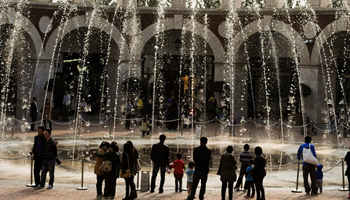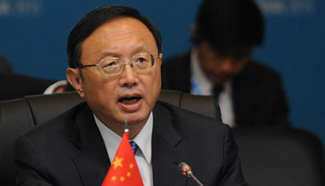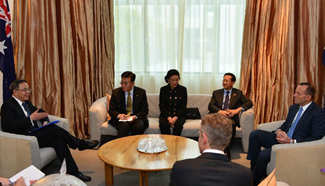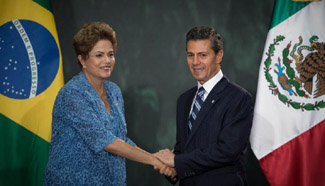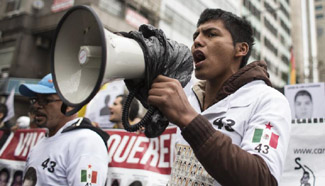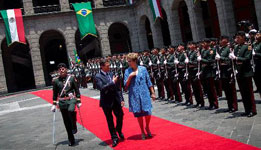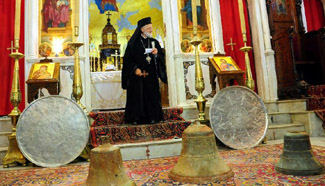
????During my 28-year career as a military pilot, I have traveled abroad four times: I trained in Paris; escorted shipping in the Gulf of Aden; traveled with warships; and participated in military drills. Each of these trips enlightened me and left me with precious memories.
????Studying in Paris
????I went to Paris with two other pilots in November 1986 to study helicopter anti-submarine techniques at a French company. Back then, anti-submarine techniques were little known in China.
????While we were excited about being in a foreign country, we faced many problems.
????Our instructor would alternate between French and English in lectures. It usually took several rounds of back-and-forth discussion for us to grasp simple jargon. Our interpreter occasionally stumbled in translating jargon. Once the instructor roared with laughter after our interpreter mistranslated a helicopter part as a kind of dress.
????We rarely did anything in Paris apart from working very hard in our studies. We went to class during the day and studied at night. After a month, our study materials stacked up half a meter high.
????The instructor was determined to test us. One day, when we had just finished a test and were on an aircraft simulator to familiarize ourselves with the equipment. The instructor suddenly slammed the cabin shut and ordered: “Start the engine. We’re doing an anti-submarine drill.” We were caught completely off guard and didn’t have the manual with us. The instructor had made up his mind and wanted to evaluate our progress. I pulled myself together, and with my fellow pilots, started the helicopter and began to search, track, locate and engage with the target. We passed the instructor’s spot check, performing all the tasks with precision. A month later, we graduated with top grades and returned home as China’s first pilots of ship-borne helicopters.
????The Gulf of Aden
????From Feb. 21 to Aug. 31, 2011, I was among the 34-member carrier-borne aircraft unit on the eighth escort mission in the Gulf of Aden. During that period, we had several face-offs with suspected pirates.
????We had to fly no higher than 300 meters above the sea to identify and dispel pirates. On the morning of April 30, I directed a helicopter on a routine patrol. At 10:48, the crew reported suspicious targets while flying at 200 meters above the sea. Several vessels were closing in on a Hong Kong commercial ship, the Jessica. The captain confirmed that a parent vessel and two speedboats carrying oil barrels were approaching. “Fire flares; dispel the targets; don’t let them approach the vessel,” I ordered.
????Meanwhile, the Jessica sent a distress call to the command center: “Chinese navy, naval vessels, pirates are approaching. Help!”
????The pirates seemed unfazed by the flares we shot. Three pirates on a speedboat charged at the Jessica. Captain Guo Xichun reported the situation back to the command center, and I ordered him to fire warning shells. Captain Guo flew lower and the navigator directed the crew to lock on the target and fire three shells at it. The sound of gunfire reverberated through the sky above the Gulf.
????Seeing we played hardball, the pirates turned and fled. To deter them from coming back, I instructed the helicopter to continue hovering above the vessel. It returned to the deck only after the pirates were gone for good.




